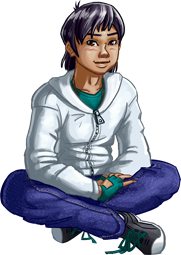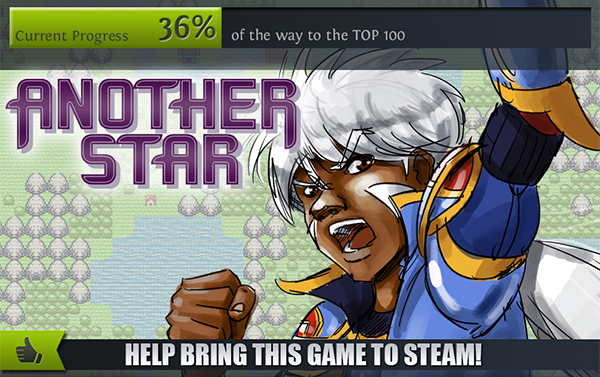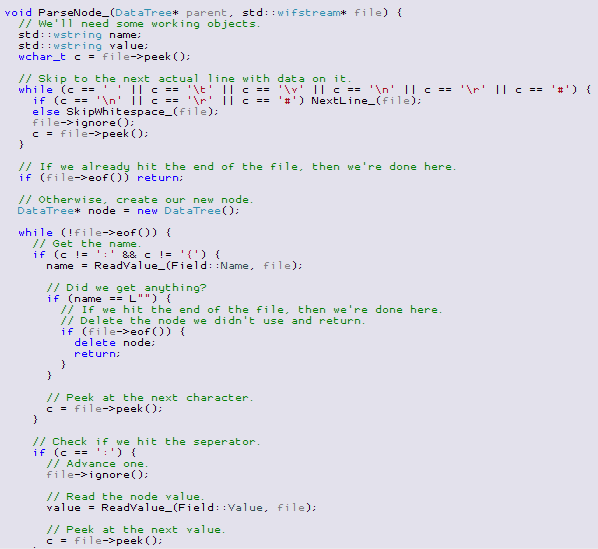I love C#. I really, really, really love C#. I got into the language because I wanted to develop for what then XBox Live Community Games (now known as XBox Live Indie Games), and Microsoft’s C# library XNA was the only way to do that. Once I got the general hang of it, using C# was the first time since fiddling around with QBasic as a kid that I actually enjoyed programming. I rarely felt like I had to “fight” the language to get things done, the way I usually do when working with C++. Sure, the language has its faults and quirks, and the lack of control over the garbage collector can be more than a little annoying, but it really is an all-around magnificent language to work in and so I love it to death.
However, the current state of support for the language is a bit irksome to me. Another Star was coded completely in C#, built on top of a custom engine that interfaces with system APIs by way of a library called OpenTK. OpenTK always annoyed me a little, often depreciating entire sections of the library before the parts meant to replace it were even implemented, let alone completed.
Just as Another Star was heading to release, a new major version of OpenTK finally came out, and it changed up the way a lot of the engine’s user input worked (keyboard, mice, gamepads, etc.). Trying to “correctly” implement these new designs has proven frustrating, as things I relied on have been removed without any real replacement. Some of these changes even led directly to bugs in Another Star; especially the Linux version. Bugs in the library also make it really difficult when trying to fix things, because I can never tell for sure whether something isn’t working because of my code or someone else’s. Or, for that matter, if I can even fix it.
I knew, even before working on Another Star, that I would probably have to move to another C# library in the future. I continued to look for a suitable replacement, but never really found anything I liked. The closest I got was a C# wrapper around the widely used C/C++ library SDL2, but it was little more than that: a wrapper. The syntax is pretty much just straight up C, without any attempt to translate it to C# conventions, at which point I feel like I might as well just code directly in C++.
So I finally gave up and that’s exactly what I’ve been doing. The past month or so, I’ve been hammering out the beginning of a game in C++, the programming language that I’ve always had a loathing for (and, at times, outright hate). C++ is nearly forty years old at this point, and in that time has accumulated a lot of cruft. It’s gotten a lot of updates over the years to keep it relevant, with varying success, which has made it—at least, in my opinion—very ugly language, especially to look at.
But the fact of the matter is that virtually all the important API libraries are written in C++. If I don’t want to build my game on top of somebody else’s code, this is my only recourse.
I already regret my decision.




